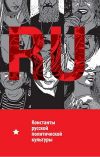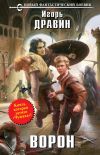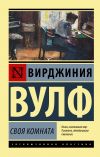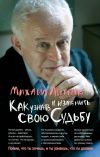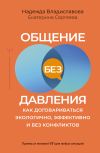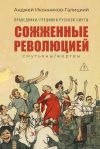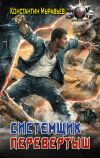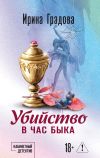Читать книгу "Untrodden paths"
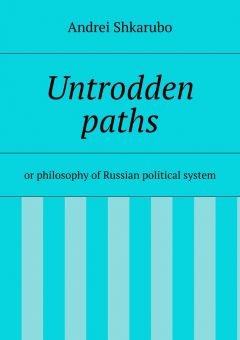
Автор книги: Andrei Shkarubo
Жанр: Современная русская литература, Современная проза
Возрастные ограничения: 16+
сообщить о неприемлемом содержимом
Victor: Because «no one lights a lamp and puts in under a bushel; instead he puts it on the lampstand, where it gives light for everyone in the house.»
Well, concerning my choice of physical terms, I must stress that if you seek to explain something, you should choose the language which can offer us its most succinct description. And physics can offer us the most precise picture of our present-day reality. Of course, this language should be comprehensible to the audience you address. But you seem familiar with physics’ basics?
Andrei: Yes, quite. I simply cannot understand how a musician…
Victor: could grasp the language of physics? It’s the result of lengthy practice of yoga, of work with one’s own body and mind. You see, neither our body nor mind differs in any way from the rest of physical instruments, except that they are more complex. It’s only natural that I in my work come to the same conclusions which physics make, that’s why I use their language.
Andrei: Funny thing: yoga has always been regarded as an idealistic, religious teaching, while you are proving to be a rabid physical materialist.
Victor: I’m neither. Idealism – materialism are simply points of view, instruments, say, kind of glasses we use to look at the world, some glasses we select are good for reading newspapers; others are good for watching TV. Religion starts where knowledge in its impotence gives way to faith, reason to morals and ethics; the borderline between them is always relative and conditional.
Bachkov, approaching: Sunbathing?
Andrei: What else is there to do? I guess we’ll have to spend the rest of the holiday season here.
Bachkov: Well, it’s not up to me to decide who or what time is spent here, but I’m sure they won’t release you until the festival ends and its foreign guests leave the country.
Dandelion, an old man about 80, addressing Bachkov: Anatoli Sergeevich, could you please give me the keys. I want to weed this flowerbed with dahlias, time permitting.
Andrei: Time is no problem here.
Dandelion looks peevishly at Andrei, without saying anything.
Bachkov: Here they are, Evgeniy Pavlovich. Watch out for the sun: they say it will be hot today.
Andrei: How did this Dandelion come to be here?
Bachkov, taking a seat: His sisters handed him over. He has two sisters in Moscow, and he lived with them…
Andrei: Is he single?
Bachkov: He is.
Andrei: Well, what’s the story?
Bachkov: The story is the usual one: either he got on their nerves, or their children wanted more living space…
Andrei: Well, he seems mentally quite sound.
Bachkov: You’d better ask Miroshkin, the late head of the hospital.
Andrei: Which Miroshkin? Do you mean Professor Miroshkin?
Bachkov: Yes, professor Miroshkin, our former head of the hospital. Did you know him?
Andrei: I surely did. He was my forensic expert, diagnosed me as schizophrenic and certified me as non compos mentis, in short, signed and sealed everything the KGB used to frame me.
Bachkov: Well, it was either him or somebody else: you wouldn’t have avoided it anyway.
Andrei: Maybe. I’ll only say that prior to Miroshkin they took me to Serbskiy Institute and asked their academician to diagnose and certify me. And he refused…
So, you say the old bastard has kicked the bucket?
Bachkov: He died four years ago.
Andrei: And what did he send the Old Dandelion here for?
Bachkov: I don’t know. Maybe for a bribe, or maybe he just did a favor. Anyway, during his term the
Dandelion received sanatorium-like treatment, and had free to access to Miroshkin. The present head of the hospital treats him well too. After all, he’s harmless, poses no problem to us, and he likes flowers. This garden is the result of his work here: those gorgeous flowerbeds under the windows, and these lilac bushes. Incidentally, I put my nose into his case file just to find out something about his background. Well, in his early twenties he graduated from Moscow University, after which there’s not a single record of his work, or anything.
Andrei: Oh, so the Old Dandelion is a veteran loafer? Why didn’t they try him for parasitism? The first frame they tried to put on me when the authorities decided to put me away was a little charge of parasitism.
Bachkov: I don’t know. He doesn’t have any criminal record either. Just no record of anything which could tell what his life was. Of course, it’s not as if it were my business. But, it’s curious.
Andrei: Yeah, if this regime survives after all, my prospects seem as bleak as those of old Dandelion: either take up arms, or live and die outlawed, behind barbed wire.
Bachkov: What’s wrong with barbed wire? As far as I know, you’ve been living in your Star City behind barbed wire all your life, without any objections.
Andrei: How do you know? Did you read it in my case files?
Bachkov: I was taken on a guided tour to your Cosmonaut’s Training Center. I used to be on the all-Russia boxing team, and as a champion was given a chance to see how you live there. I must say lots of people would envy the life behind barbed wire you have!
Andrei: Oh, really? So what did you find so tempting there? Sausage or foreign-made garb in our shops?
Bachkov: Well, if so, what’s wrong with it?
Andrei: Good question. I hope you, as a sportsman, should know that no one gets such things free: some pay for them with their health, some with their lives, and there are some who would readily sell their souls for those comforts. When our commanding fathers decided to lock me up, and ordered criminal charges brought against me, the investigator from our special prosecutor’s office, a rare species of a bastard, told me frankly: «You know I don’t have anything personal against you, but you see, I, too, have health problems. I have gastritis and I need a special dietary country cheese, which I can buy only in Star City, you understand?» I told him sympathetically that oatmeal boiled in water is quite good for the stomach, and he said «Ok, wise guy, I’ll see that you have plenty of it, and for a long time».
Bachkov: I’d rather move under the shed and play dominoes with the boys, it’s getting too hot here.
Exits.
Andrei, grinning: I guess it’s the topic which got too hot for him.
Victor: He’s the most decent male-nurse we have here. He studies at a medical college, incidentally. There are also two drunkards from the nearby alcoholic ward; as for the third one, I have no idea who he is, but he has the manners of a criminal, and he associates with Sasha’s sort.
Andrei: To tell you the truth, of the three types you’ve mentioned it’s the «decent» type I trust least. When I got in a psychiatric hospital for the first time and they certified me as non compos mentis, I went on a hunger-strike, demanding a court trial. On its seventh day, the hospital administration ordered me force-fed. And there were two male-nurses on duty that day: a «decent» one, as you say, incidentally, a college student too, and the other, an ex-convict, with two prison terms for burglary. And it was this guy who refused to take part in my force-feeding. So they asked for volunteers among the patients – about two thirds of our ward were criminals, brought either for forensic examination or transferred from psychiatric prisons. Well, none of them volunteered. The two who did came from a «decent» background. So your thesis that morals and ethics begin when scheming ends, I can confirm by my own past experience.
Victor: Well, what I said was that the human mind cannot foresee all the consequences of human acts, which is why it resorts to such safety rules as morals and ethics. But taking into account that the human mind, as it becomes increasingly ego-centered, quickly turns to scheming, rather than reasoning, I think your way of putting it is quite correct. Moreover, it may be painful for you to hear, but your interpretation is close to
Lenin’s. He, too, was rather skeptical of the intellectuals’ worth, remarking that they are not the nation’s brain, but rather its bran, or excrement.
Andrei: I don’t know what he said on that score. Anyway I’m not going to replace Christ’s commandments with class morals, the way he and his gang did.
Victor: Never say «never», because to some extent he was right on that score too. Of course, the morals of a social class are a poor substitute for Christ’s commandments, or rather the moral-ethical norms of the
Cosmos…
Andrei: So, why was Lenin right, then?
Victor: He was right to a point because the degree of human receptiveness to Christ’s commandments, incidentally, based on love – that is, the capability of compassion and sacrifice – this receptiveness, indeed, depends on class consciousness: the more oppressed it is, the greater its capacity for compassion and sacrifice. It’s not so much our being, as our beatings, which determine our consciousness. Christ himself stressed that idea, remarking that it’s easier for a camel to pass through the needle’s eye than for a rich man to enter the Kingdom of Heaven.
Andrei: It’s no use arguing with you.
Victor: Why not? It’s in dispute that truth is discovered. Though our cellmates with criminal records, like
Sasha, would say that «He who argues isn’t worth shit».
Andrei: I’m afraid they are more correct under the present conditions.
Victor smiling: I see you are already learning the principle of relativity and condition. Incidentally, if I got you right, you live in Star City?
Andrei: Yes.
Victor: And what did they try to prosecute you for?
Andrei: Easy question which is hard to answer. You see when the KGB tries to frame you, the formal charges they bring against you quite often have nothing to do with the actual cause for which you are being prosecuted. In my case the actual reason was so foul that they even were not unanimous on their formal charges and tried everything that might stick, from low parasitism to high treason, but finally decided on evasion of military service.
Victor: I see. A Russian continuation of Yaroslav Gashek’s story of the brave soldier Sweik: a spy, a lunatic and a deserter all rolled into one.
Andrei: Yes, sir.
Victor: So what did you do to them that they have such a grudge against you?
Andrei: Nothing. And that’s the grudge. As I said it’s a long story which started 15—17 years back when they began pressing me to snitch on my schoolmates, and my mother to inform on the cosmonauts, because, as they put, «some of them allowed themselves too much».
We refused – and were subjected to rabid harassment, which is easy in a closed garrison. In short, I was vaccinated against TB, although this vaccination was strictly proscribed to me on health grounds, and against which mother repeatedly warned the doctors. After their vaccination I developed problems with my lungs.
Victor: And they did their best to conceal its cause, leaving you without a diagnosis, but offering treatment in exchange for cooperation, right?
Andrei: Yes, that’s about how it actually was. How do you know?
Victor: It’s an old, sure way of recruitment. They use it mostly in the labor camps, though. So, what happened next?
Andrei: The next ten years my mother spent trying to get to the truth, in endless appeals to numerous authorities, from the bottom level to the top – all in vain: no diagnosis – no treatment. So I was forced to take up herbal medicine and yoga.
Victor: Did they help you cure the TB?
Andrei: No, they didn’t. But they helped me not to die from it; at least, not immediately. Well, after I finished school, I entered a college and was to study applied mathematics, but after six months I had to drop out for health reasons.
After which they were legally bound to draft me. I thought it was my chance to make them diagnose me, so I lodged an appeal with the head of the draft office, demanding judicial inquiry into my case, as well as a medical forensic examination; after which the draft office, apparently under pressure from our top brass and special department, ignored the problem of my draft for five years in the hope that the problem would disappear of natural causes. But it didn’t. Then in 1981 they summoned me to our special prosecutor’s office, and the prosecutor gave me an ultimatum: either I enlist in the army, and receive the necessary treatment there, or they prosecute me for parasitism. I said Ok, if forensic medical experts were to find me healthy, I’d go to prison.
Victor: It’s strange: Knowing how these thugs hate legal scandals and disclosures, it would have been easier for them to kill you rather then start criminal procedures.
Andrei: I suspect that’s exactly what they tried to do. A couple of days after my summons to the prosecutor’s office, in the early afternoon hours, when I was at home alone and my parents at work, I felt a strange pleasant whiff of some perfume present in my room. I learned later that it was the scent of almond.
Victor: Or cyanide.
Andrei: Exactly. Well, soon I developed symptoms of cardiac arrest, and I started panting. I must admit that despite my chronic TB and periodic coughing of blood, I had never faced the prospect of imminent death. In short, dying is difficult if it’s the first time you’ve experienced it. Panicking, I gulped a huge amount of eleutherococcus’ extract, you know a plant of the ginseng family. They give it as a stimulant to cosmonauts or sportsmen. May be it’s this stuff that saved me; I don’t know.
Victor: I doubt it. I guess it just wasn’t your time to die.
Andrei: I guess you’re right. Anyway, dashing around the apartment, I, on the one hand, knew that it was death, and I was dying; on the other, I felt some force which wouldn’t let me die. This experience of two opposite forces clashing within me, tearing my body apart, was rather terrible. Yes.
Later that day my parents came and called the emergency. I was taken by our garrison ambulance to the district hospital, where the only thing they gave me was some sedative, for neither the colonel who’d brought me, nor the hospital’s civilian staff, could figure out what the problem was.
Next morning I returned home as if nothing had happened, but later in the day some red rash appeared and began spreading rapidly so that by evening my whole body had become red, with a fever of over 40. Again, the doctors were at a loss for the diagnosis: It didn’t look like measles or anything else they knew.
Victor: It was the poison burning down in your body.
Andrei: Yeah, I guess so. I can’t say how long I had this high fever, nor would I like to go through it again, recollecting all this. Anyway, I survived, much to the confusion and chagrin of this gang.
So they had no option but to take me once again to the prosecutor’s office and give me the same ultimatum: either the army or a labor camp – this time on charges of evasion of military service.
Okay, I said, I opt for the labor camp, but first, you have to conduct the medical check.
They did it, and again the prosecutor offered me to choose: either the army or a psychiatric asylum for criminals. I said how about the five years in a labor camp you promised last time? No, he said; we cannot send you to a labor camp: the medical check shows you have an active form of TB.
After that I had no option but to try, before they did lock me up, to appeal for help to the US Embassy.
That’s what I and my mother were institutionalized for.
Victor: Did you go to the Embassy together?
Andrei: Yes. Luckily, they didn’t keep her there long.
Andrei: In the psychiatric hospital they continued with their threats, promising me a trial by a tribunal for treason and espionage, unless I showed repentance for what I’d done. I said I’d rather plead guilty and surrender the whole of the spy-ring: meeting places, addresses, names – and what names, too.
To forestall such a scandalous possibility, the KGB reported that in addition to the American embassy, there were two or three other western embassies I had tried to get into; in short, that I had an obsession for appealing to foreign embassies, after which they diagnosed me as schizophrenic, and therefore non-composmentis; that is, mentally unable to stand trial for the committed crime – evasion of military service.
Victor: If I get it right, it means that you are a deserter, but they didn’t try you because you happen to be a loony, too.
Andrei: Yes, sir. And they rounded me up for this youth festival period because I’m also a suspected spy as well.
Victor: Small wonder, in light of the fact that you know English and can freely communicate with the enemy in their own language, an ability often beyond their own mental grasp. How long did they keep you then?
Andrei: I can’t say for sure. About three months.
Victor: Just three months? They keep people locked for years in such cases.
Andrei: That’s what they had actually planned, but my hunger-strike must have spoiled everything. They did their best to persuade me not to raise a racket: sit quiet for a year or so, they said, and we won’t give you any injections, only pills, which you can spit or swallow – nobody cares. In a year the scandal dies down, and we let you out.
I wouldn’t listen to their propositions, though. By that time I’d seen enough to know better. Besides, being in a mental hospital and communicating with ordinary guys, like Sasha, I saw that what they’d done to me wasn’t an isolated incident, but a typical example of how this system works. I saw that there were lots of ordinary people actually getting a much harsher deal from this gang than I was. In other words, I understood that dealing with the commies no quarters should be asked, nor given; that they were simply destroying us under various guises, because, I became convinced, sooner or later we’d destroy them. There’s no other option, no.
In short, by that time I hated those bastards so much I wouldn’t talk with them anyway. Besides, they overdid their persuasions: to make me more pliable, they transferred me from the observation ward where ordinary criminals were kept to the ward for the privileged. Apparently they thought a guy from Star City would feel greater kinship for high-ranking thieves rather than the common rabble which was so overflooding their labor camps that they were forced to send some of them to psychiatric hospitals.
I must say that some of the boys were sent there for taking part in mass protests – either by cutting their wrists, or going on a hunger-strike – there was a lot of unrest in prisons and labor camps at the time.
Victor: The Sun was rather active that year, spurring mankind to fight for freedom, not just in our country, but all over the planet. Remember the workers’ revolution in Poland, the tragic hunger-strike of the IRA prisoners in Northern Ireland? They are good examples of this.
Andrei: Of course I remember. Their choice of freedom at the cost of their lives served as an example to all of us who were enslaved for wanting to be free.
Victor: Well, not only to them. It was this summer that I attained enlightenment: the very same freedom at the price of one’s own life.
Andrei: Excuse me, but I don’t understand this paradox or yours. If I can believe my eyes, you are more alive than dead, though maybe not quite free.
Victor: The problem is that your eyes can see no further than the outward form. Outwardly, I, indeed, am alive, though not free. Inwardly, it’s quite the contrary. Such are the dialectics.
Andrei: I didn’t get you just the same.
Victor: Never mind, you’ll learn. So what wrong did they do to you by transferring you from the observation ward to the ward for the privileged?
Andrei: I was one of their own in the observation ward. The guys who suffered a lot from the commies hated their guts – and here they send a guy who dared to go to the US embassy, well, the general attitude was understandable.
Solidarity in general was the norm in the ward, something absolutely alien to this pack of bitches called «socialist society». I remember an incident in our canteen when I was called a traitor and a CIA agent by some bastard who either wanted to show his patriotism to win favors, or was just trying to provoke me to a fight – I don’t know. Anyway, his reward was not long in coming: his first toilet sortie after that incident proved most unfortunate – he slipped and badly smashed his head on the toilet bowl. Yeah, after this none of those bitches dared to show us their fucking patriotism.
So they transferred me to the so-called recovery ward, for the bitchiest bitches, like the deputy director of our local Schelkovo steel-mill, some department head in the Foreign Trade Ministry, the head of some big supermarket in Moscow; in short, all those bossy felons, and a couple of bosses’ sons – one was a deputy principal in a prestigious English language school. The bastard screwed half of his students, undermined his health, and therefore badly needed treatment; the other one was a young sadist killer who knifed a girl in his class, and she bled to death. What surprised me most was that this scum was allowed what they called «leave», and spent every weekend at home. On weekdays they were given vitamins and electric sleep treatment. And in their spare time they lectured me on patriotism, saying that I must love their fucking country, and defend it by serving in the army, instead of selling it out to the US imperialists. The deputy director of our local steel-mill and the pedophile principal whose daddy was said to hold some high post in the KGB were the ones who persevered the most. I don’t know how much patience I had left for listening to those bitches, but luckily, on the fifth day of my hunger-strike, when they saw I was not bowing to their persuasion, they sent me back to the observation ward. And on the seventh, they gave me the hell they had total blackout induced by injections of God knows
promised before. To tell you truth, for me it was a what junk.
Then they released me. Frankly, I still don’t know why. Apparently, they were convinced I wouldn’t last long, with active TB at that, and they simply didn’t want an extra corpse on their hands.
Victor: Yes, I see. Well, nowadays, you look quite healthy, alive and kicking I’d say. I saw you jerk this dumb-bell.
Andrei: Quite right. It may be funny to hear but it was this stint in the mental asylum which spurred my physical recovery. It helped me shed the remaining illusions about our communist pie-in-the sky, giving me such a powerful charge of hatred of our regime and a desire to fight it, that after my release I was improving with magic speed, though I was practicing the very same yoga and herbal treatment which earlier had brought me very little relief.
Victor: It’s not surprising: yoga, first and foremost, is a spiritual practice, not a physical exercise, the effect of which is indeed minute. As soon as yoga becomes a spiritual feat for its practitioner, the magic begins.
OK, never mind. I think you’ll have lots of other miracles ahead of you, now that you’ve become a true yogi. This is not crucial. What is crucial is that you now know that one has to sacrifice, to pay with one’s life for one’s spiritual freedom, integrity, for spiritual values. Now you know that sacrifice is the main law of spiritual development. Like a child, you’ve only made the first step there. You have yet to learn how to walk, acquiring on your way spiritual skill and knowledge for which one also pays with his life.
And, knowing your passionate love for communism, I feel inclined to tell you one secret: the communist pie will soon fall out of the sky.
Andrei: Damn, man, do you think it’s funny?
Victor: I’m absolutely serious. But let’s dwell on it later. The sun is such a treat today that I don’t want to spoil the enjoyment with talk of politics.
Внимание! Это не конец книги.
Если начало книги вам понравилось, то полную версию можно приобрести у нашего партнёра - распространителя легального контента. Поддержите автора!









